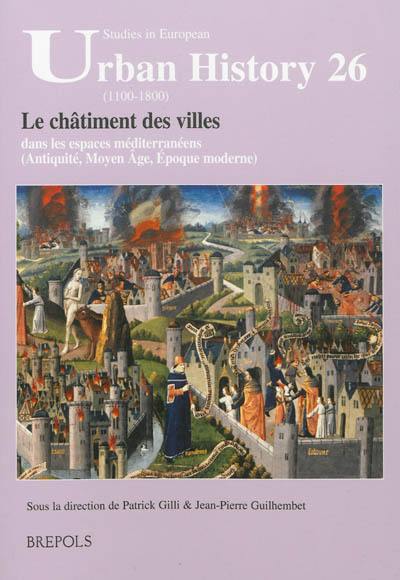
Fiche technique
Format : Broché
Nb de pages : IX-408 pages
Poids : 400 g
Dimensions : 18cm X 25cm
ISBN : 978-2-503-54051-1
EAN : 9782503540511
Le châtiment des villes dans les espaces méditerranéens
Antiquité, Moyen Age, Epoque moderne
Quatrième de couverture
Les villes comme organismes politiques ont souvent été l'objet d'une répression spécifique de la part de leurs ennemis ou d'une autorité souveraine. Des mesures les plus symboliques, comme l'abattis des murailles, aux plus radicales, comme la réduction en esclavage des populations ou l'éradication a fundamento du bâti, le châtiment des cités reflète la place que ces dernières occupaient dans l'économie des pouvoirs. L'approche comparatiste ici privilégiée permet de voir, sur la très longue durée, de la haute Antiquité à la Révolution française, les modalités de la punition, la réflexion sur la licéité ou la pertinence de la sanction, les discours et les représentations que ces dispositifs déployaient. C'est donc un regard singulier sur l'histoire urbaine qu'apportent ces études, comblant de fait une étonnante lacune historiographique.
Studies in European Urban History (1100-1800)
This study is part of a series growing out of a larger project entitled 'City and society in the Low Countries, 1200-1800: space, knowledge, social capital' organised under the auspices of the 'Interuniversity attraction poles Programme - Belgian State - Federal Public Planning Service, Science Policy (PPS Science Policy)' Programme 'Pôles d'attraction interuniversitaires - Etat Belge - Service public federal de programmation politique scientifique (SPP Politique scientifique)'. The participants in the program are the Universities of Ghent, Brussels; Utrecht and Antwerp, and the manuscript department of the Royal Library (Albertina) in Brussels, and the Fine Arts Museum in Brussels. This phase of the project (PAI phase VI) focuses on three issues : urban space, knowledge and culture, social capital. Starting with number 10 the volumes present the studies prepared by scholars associated with the project during the period 2007-2011 (phase VI) . By foregrounding the place of the city in the Late Medieval and Early Modem history of the Low Countries, the essays both expose and help to explain the exceptional character and the disproportionate importance of the region within the European context during these centuries.
The series invites authors to submit their manuscript to the series editor. After principal acceptance by the board, anonymous peer review will intervene to decide on publication.





